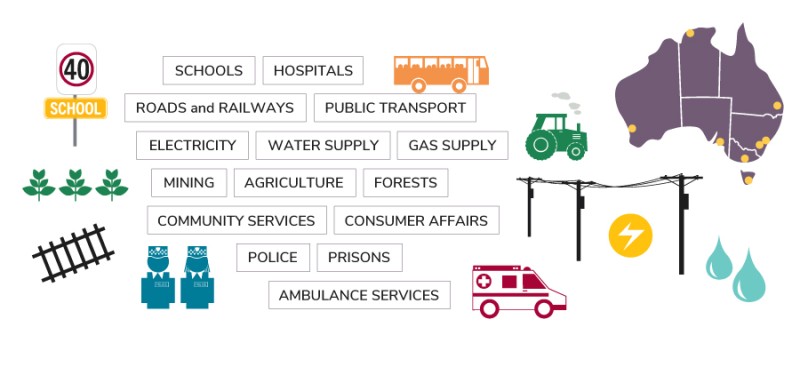What kinds of laws are state parliaments not allowed to make because of section 52 of the Australian Constitution?
Section 52 of the Australian Constitution lists the areas about which only the federal parliament can make laws (and therefore, the areas that states are not allowed to make laws about.) These are called exclusive powers of the Australian Parliament. Section 52 says:
- the Australian Parliament is the only parliament allowed to make laws about ‘the seat of government of the Commonwealth.’ This means states are not allowed to make laws about Australia’s capital city and where the Parliament meets.
- only the Australian Parliament can make laws about places ‘acquired by the Commonwealth for public purposes.’ This means that state parliaments cannot make laws about places like defence bases or national parks.
- the Australian Parliament has authority over the federal public service. This means states do not have the power to make laws about departments and workers that belong to the Australian Public Service.
- only the Australian Parliament is allowed to make laws about other matters that the Constitution says are exclusive to it. For example, laws about customs duties can only be made by the Australian Parliament because this is mentioned in another section of the Constitution (section 90).
The law-making powers of state parliaments

Parliamentary Education Office (peo.gov.au)
Description
The law-making powers of the state parliaments include:
- schools
- hospitals
- roads and railways
- public transport
- electricity
- water supply
- gas supply
- mining
- agriculture
- forests
- community services
- consumer affairs
- police
- prisons
- ambulance services.
This work is licensed under a Creative Commons Attribution-NonCommercial-NoDerivs 3.0 Unported License.
You are free to share – to copy, distribute and transmit the work.
Attribution – you must attribute the work in the manner specified by the author or licensor (but not in any way that suggests that they endorse you or your use of the work).
Non-commercial – you may not use this work for commercial purposes.
No derivative works – you may not alter, transform, or build upon this work.
Waiver – any of the above conditions can be waived if you get permission from the copyright holder.
